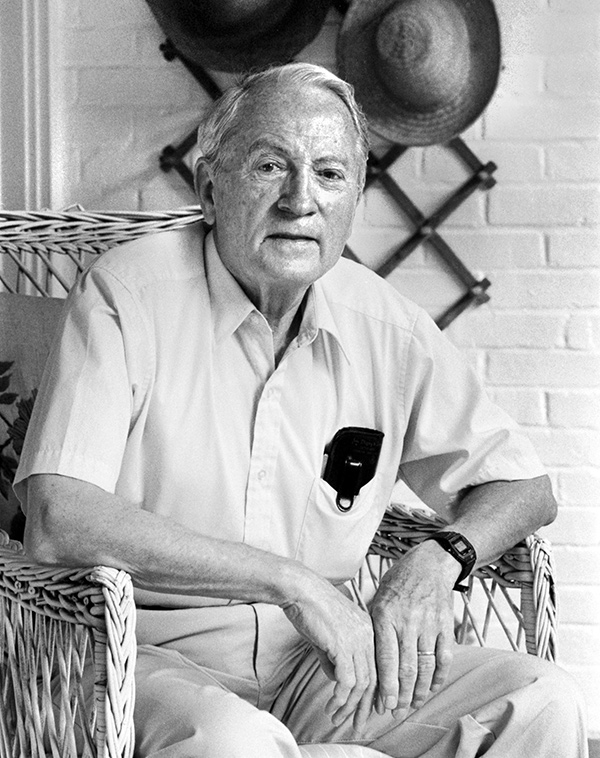Tribute
Rozier was public face of Emory

Watchman: Rozier "watched Emory grow up and he appreciated the changes," says Ginger Cain. He created what is now Emory Report.
Emory Photo Video
John W. Rozier 39C 47G, Emory’s longtime communications director who used his intimate knowledge and extensive network to raise the University’s profile, died from respiratory failure on January 8 at his Atlanta home. He was ninety-two.
A Sparta, Georgia, native, Rozier first enrolled in Emory during the Great Depression, graduating Phi Beta Kappa in time for World War II. He volunteered for the Navy and commanded a landing craft tank through four Mediterranean invasions, including the war’s largest amphibious operation in Sicily with a front spanning more than a hundred miles.
After the war, Rozier returned to Emory to receive his MA in journalism, edit the Emory Wheel, and meet Dorothy Evans, the woman who would become his wife of sixty-one years. Later, as a Foreign Service Officer, he attended ceremonies inaugurating the Korean Republic in 1948 and was among the last American officials to evacuate China during the communist revolution in 1949. He fled Chungking with a cash-filled embassy satchel manacled to his wrist.
After receiving a plum assignment in Beirut, Rozier left government in 1952 to purchase the weekly Wrightsville, Georgia, Headlight newspaper, serving as publisher and occasional delivery boy. He later owned the Henrico County Herald in Richmond before moving to Atlanta to comb Vogue for story ideas as editor of the woman’s pages for what was then the Atlanta Constitution.
In 1959, Emory recruited Rozier to direct the Emory News Bureau, a precursor to the University’s Office of Communications and Marketing. He crafted the University’s communications strategy during pivotal moments, including University desegregation and the 1965 “God is dead” controversy.
“Everybody knew John in those days. He was such a popular figure around campus and he always had a twinkle in his eye,” recalls Linda Matthews, retired director of the Woodruff Library.
Rozier maintained his easygoing nature even while orchestrating damage control, says Dorothy Rozier 46C.
To honor Emory’s sesquicentennial in 1986, Rozier conducted a series of interviews with influential faculty members to discuss the shifting landscape of the University, remembers Ginger Cain 77C 82G, director of public programs for the Emory Libraries. For his service, Rozier was recognized by the American College Public Relations Association and received Emory’s Alumni Award of Honor in 1978 and Distinguished Emeritus Award in 2007.
He retired from Emory in 1979, after being awarded a National Endowment for the Humanities grant to research political developments in Hancock County, Georgia, his family’s home since the eighteenth century. The result was Black Boss: Political Revolution in a Georgia County, followed by two award-winning books on Southern culture, The Granite Farm Letters and The Houses of Hancock.
Rozier donated his source material for Black Boss to MARBL and remained active in the University by attending readings and events at Woodruff Library. He was a regular participant in the Corpus Cordis Aureum, celebrating alumni who graduated fifty or more years ago.
“John was a complete gentleman who loved Emory and labored on its behalf with utmost distinction,” says Trustee Emeritus Charles “Pete” McTier 61BBA. “His sincerity, respectfulness, and friendliness were hallmarks of his personality.”






